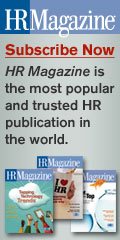How do I keep my certification without EVER having to take that test again?
 Print this Article | Send to Colleague Print this Article | Send to Colleague
Okay—so you have your certification. Congratulations! The question now becomes: "How do I keep my certification without EVER having to take that test again?" Chances are that you are already doing a number of things that qualify as recertification credits, even some of those ever-elusive STRATEGIC MANAGEMENT credits. Below is a list you can use to see what you may already being doing or could be doing so that you can start keeping up with your recertification. Recertify through Professional Development Activities. You can collect recertification credit for any of the following activity types:
Continuing Education
• College courses.
• Conferences/seminars/workshops.
• E-leaming courses/webinars, etc. (20-credit hour limit).
• Instruction/teaching (20-credit hour maximum).
• Making a formal presentation within your organization.
• Teaching a course or workshop or presenting a seminar or conference session.
Examples of instruction activities that earn credit hours:
• Leading an HR-related workshop or training session inside or outside of your workplace.
• Teaching a sexual-harassment workshop or leading a performance management seminar.
• Teaching a semester-long, HR-related college-level course.
• On-the-job experience (20-credit hour maximum).
• Research and design of a benefits plan.
• Research, design and implementation of a diversity program.
• Research, design and implementation of a performance management system.
• Research and implementation of an HR Information System (HRIS) system.
• Participation in labor negotiations.
• Development of an employee handbook.
For any first-time work experience, it's likely that you will spend more time researching, designing and implementing the new work product than the maximum available in this category.
To record your time:
• List the work project(s) and the duration and dates.
• Calculate the number of hours spent on the work project research and publishing (20-credit hour maximum).
• Solely writing an article that is published in a journal or periodical (20 credit hours).
• Making a significant contribution to a published text, such as a textbook (20 credit hours).
• Co-writing or editing an article or a chapter in a textbook (10 credit hours).
• Writing and publishing a fact-based blog post covering subjects related to the HR field (.5 credits per post, a limit of six credit hours during the three-year certification cycle).
Professional Membership (10-credit-hour maximum)
• SHRM (three credit hours per full year).
• American Society for Training and Development (ASTD) (two credit hours per full year).
• WorldatWork (two credit hours per full year); leadership (10-credit hour maximum).
• Holding a leadership position within a national or international HR-related association (such as SHRM).
• Chairing an HR committee within a local Chamber of Commerce.
• Using your HR expertise to further a volunteer organization's mission.
• Mentoring a less-experienced HR professional for one year (five credit hours). Note that the mentoring program must be formal and measurable, such as through SHRM or a chapter.
• Completing a survey that results in a SHRM-published survey reports: general survey, customized benchmarking and LINE® (one credit hour per year, a limit of three credit hours during a three-year recertification cycle).
• Testifying before Congress or a state legislative or governmental body on an HR-related topic.
As in all categories, recertification candidates are advised to retain proof of participation in case of an audit.
Strategic Business Management Activities
• Interpret information from external sources related to the general business environment, industry practices and developments, technological developments, economic environment, labor pool and legal and regulatory enviromnent, in order to contribute to the development of the organization's strategic business plan.
• Participate as a contributing partner in the organization's strategic business planning process.
• Establish strategic business relationships with key individuals in the organization to influence decision making.
• Establish relationships/alliances with key individuals in the community and in professional capacities to assist in meeting the organization's strategic business goals and objectives.
• Develop and utilize metrics to evaluate HR's contributions to the achievement of the organization's strategic business goals and objectives.
• Develop and execute strategies for managing organizational change that balance the expectations and needs of the organization, its employees and all other stakeholders.
• Develop and align the organization's human capital management plan with its strategic business plan.
• Facilitate the development and communication of the organization's core values and ethical behaviors.
• Reinforce the organization's core values and behavioral expectations through modeling, communication and coaching.
• Develop and manage the HR budget in a manner consistent with the organization's strategic business goals, objectives and values.
• Provide information for the development and monitoring of the organization's overall budget.
• Monitor the legislative and regulatory environment for the potential impact of proposed changes on the organization, taking appropriate proactive steps to support, modify or oppose the proposed changes.
• Develop policies and procedures to support corporate govemance initiatives (for example, board of directors' training, whistleblower protection, code of conduct).
These lists are not all-inclusive, like those vacations you get with excursions and drinks (something we all need after the certification exams), nor do they include things that may not have been done before or thought of yet. If you have questions about whether a particular course or activity qualifies for credit, you may email them to info@hrci.org. They will respond within two to four business days. Of course, you can always contact me for help. If I don't know the answer right away, I can surely get it for you and maybe save you a little time! I can be reached at texasshrm@gmail.com.
   
|
|




